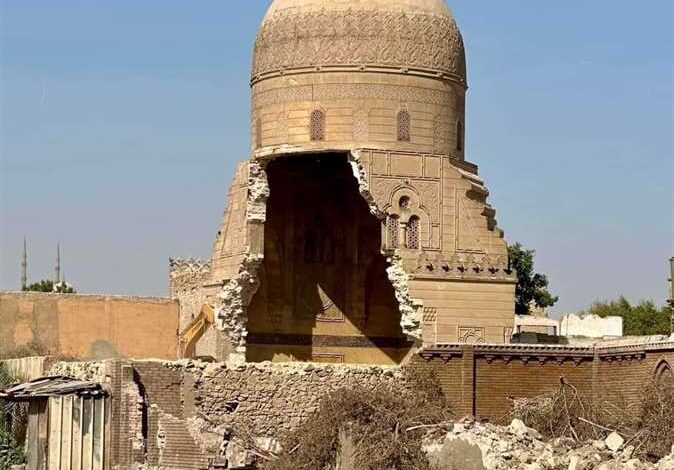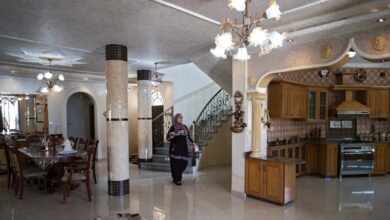
The demolition of Muhammad Ali Pasha’s daughter-in-law’s tomb in the Imam Shafi’i cemetery has ignited a firestorm of controversy on social media.
Netizens vehemently condemned what they termed as an ‘assault on historical sites, particularly Egypt’s Islamic heritage.’ Amidst growing public outcry, calls for the preservation of Cairo’s historic landmarks have intensified.
Member of Parliament Abdel Moneim Imam has submitted a parliamentary inquiry demanding answers about the reasons behind the demolition and the measures being taken to protect the country’s architectural and historical heritage.
MP Maha Abdel Nasser has expressed deep sorrow and concern over the demolition of the historic Halim Pasha tomb in the Sayyida Aisha area, lamenting the ongoing destruction of ancient tombs.
In a statement on her official Facebook page, Abdel Nasser highlighted that this disregard for the historical and cultural significance of these sites constitutes an irreparable loss.
She emphasized that our architectural heritage is an integral part of our identity and history, and the destruction of such landmarks distorts the collective memory of Egyptians. The MP called for an immediate halt to demolition activities and a comprehensive review by all relevant authorities to protect the remaining cultural treasures that connect our past to our present.
Ayman Fouad, a professor of Islamic history and civilization, has linked the demolition of Muhammad Ali Pasha’s daughter-in-law’s tomb in the Imam Shafi’i cemetery to a broader issue of undervaluing Islamic historical artifacts, making their removal easier. Fouad explained that these tombs and domes, dating back to the 19th century and over 150 years old, are considered historical artifacts.
He highlighted that anything over a century old is classified as an artifact, and Cairo, as the only complete Islamic city that has maintained its value, size, and development for a thousand years, from the Fatimid, Ayyubid, Mamluk, and Ottoman eras to the Muhammad Ali dynasty and the modern state, is particularly rich in such heritage.




